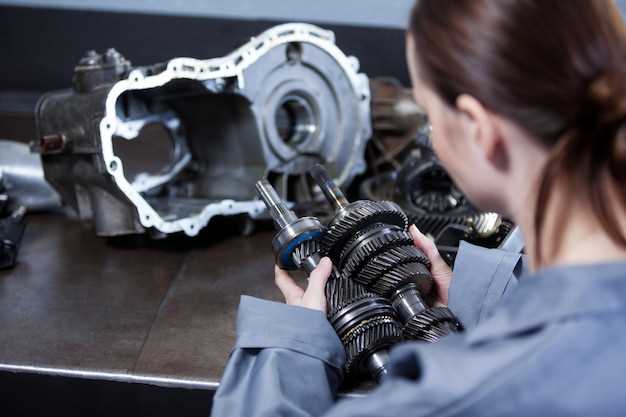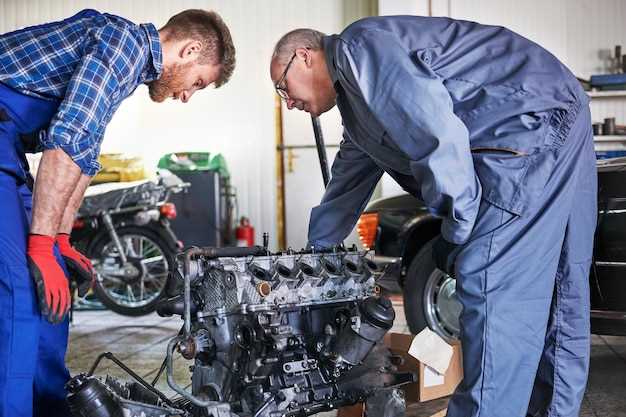Preventive maintenance tips for high-mileage engines

As vehicles age, their engines often require more attention to maintain optimal performance. Implementing effective preventive maintenance strategies is essential for ensuring the long-term health of high-mileage engines. By taking proactive steps, you can significantly extend the lifespan of your engine and enhance its reliability.
One of the key aspects of maintaining a high-mileage engine is understanding how to use the right products and practices tailored to your specific vehicle’s needs. Regular oil changes, utilizing high-mileage oil formulations, and conducting thorough inspections are just a few of the vital tasks to keep your engine running smoothly. These practices not only help in detecting potential issues early but also support the engine’s efficiency.
Incorporating preventive maintenance into your routine can lead to impressive benefits that resonate throughout the vehicle’s performance. Whether it’s checking fluid levels, monitoring coolant conditions, or ensuring the proper functioning of belts and hoses, each action contributes to a prolonged engine life. Prioritizing these tasks fosters a proactive approach that pays off in the long-term, helping you avoid costly repairs and unexpected breakdowns.
Choosing the Right Oil for High-Mileage Engines

When it comes to maintaining high-mileage engines, selecting the appropriate oil is crucial for long-term performance and reliability. As engines age, they experience increased wear and tear, which can lead to various issues such as oil leaks, reduced efficiency, and higher oil consumption. Therefore, using specially formulated high-mileage oil can make a significant difference in preserving engine health.
High-mileage oils typically contain additives designed to condition seals, reduce friction, and minimize the buildup of engine sludge. These oils often have a higher viscosity rating, which helps to maintain proper lubrication even in older engines that may have developed small leaks.
When choosing oil for a high-mileage engine, it is essential to consider the manufacturer’s recommendations. Look for oils that meet the specifications outlined in your owner’s manual. This will ensure that you are using oil that is suitable for your specific engine type and condition.
Additionally, regular oil changes are key to effective maintenance. While high-mileage oils can help extend the life of your engine, they are not a substitute for routine servicing. It is advisable to change the oil and filter every 3,000 to 5,000 miles, depending on your vehicle’s needs and driving habits.
In summary, using the right oil in high-mileage engines is critical for long-term performance. By choosing a high-mileage formulation and adhering to regular maintenance schedules, you can help ensure that your engine continues to perform efficiently for years to come.
Inspecting and Replacing Engine Belts and Hoses

Regular inspection and replacement of engine belts and hoses are critical components of effective maintenance for high-mileage engines. Over time, these parts can wear down due to heat, exposure to fluids, and general aging, leading to potential engine failure if not addressed promptly.
Start by checking the serpentine and timing belts for signs of cracking, fraying, or glazing. A worn belt can slip or break, resulting in severe engine damage. It’s advisable to follow the manufacturer’s recommended replacement intervals, which can vary based on the vehicle’s make and model, but a general rule of thumb is to inspect belts every 30,000 miles and replace them every 60,000 to 100,000 miles.
Hoses, including coolant and vacuum hoses, should also be examined for any signs of wear. Look for soft spots, bulges, or leaks. Hoses should be firm to the touch; if they are brittle or cracked, they must be replaced. The coolant hoses should be replaced every four years or as recommended. This is crucial in maintaining optimal engine temperature and preventing overheating.
Both belts and hoses play a significant role in engine performance and longevity. Regular maintenance of these components will help ensure that your engine runs smoothly for the long term, reducing the risk of unexpected breakdowns and costly repairs. Be proactive in your inspections, and when in doubt, consult a professional mechanic to ensure your high-mileage engine remains in excellent condition.
Conducting Regular Fluid Checks and Changes
Regular fluid checks and changes are essential for maintaining a high-mileage engine’s performance and reliability over the long term. Proper maintenance of engine fluids not only enhances efficiency but also helps prevent potential damage that can lead to costly repairs.
Key fluids to monitor and change include:
- Engine Oil: Check levels monthly and change the oil based on manufacturer recommendations or every 5,000 to 7,500 miles. Using high-mileage oil can provide additional benefits, such as reduced wear and improved seal condition.
- Coolant: Inspect coolant levels regularly and top off if necessary. Change coolant every 30,000 to 50,000 miles, depending on the type used. Proper coolant maintenance prevents overheating and protects against corrosion.
- Transmission Fluid: Regularly check the transmission fluid level and condition. Change it every 30,000 to 60,000 miles to ensure smooth shifting and prolong the life of the transmission.
- Brake Fluid: Check brake fluid levels every few months, since low levels can indicate leaks. Change every 2 years or as recommended, as old fluid can absorb moisture and compromise braking efficiency.
- Power Steering Fluid: Monitor power steering fluid levels to ensure responsive steering. Change if the fluid appears dark or contaminated.
To ensure effective maintenance:
- Perform visual inspections for leaks around fluid reservoirs.
- Use the correct type and grade of fluids as specified in your owner’s manual.
- Maintain a regular schedule for fluid changes and checks to avoid neglect.
- Consider using a dipstick or fluid tester to evaluate the condition of the fluids.
Consistent attention to fluid checks and changes will extend the lifespan of your high-mileage engine, ensuring optimal performance and reliability over time.




